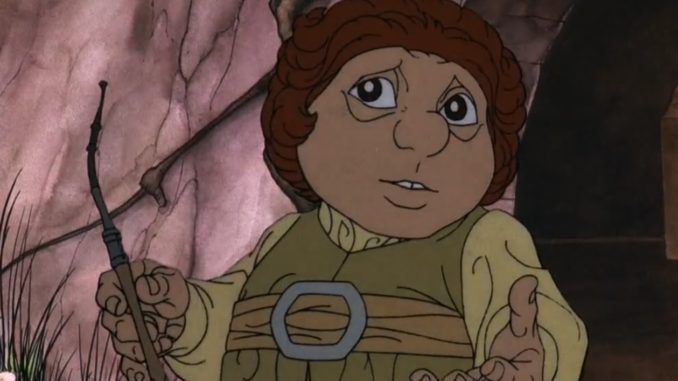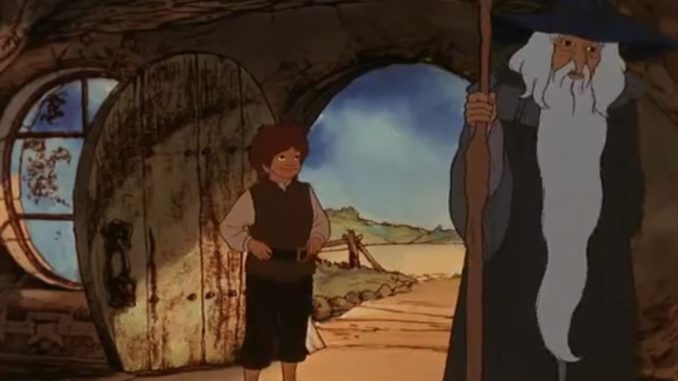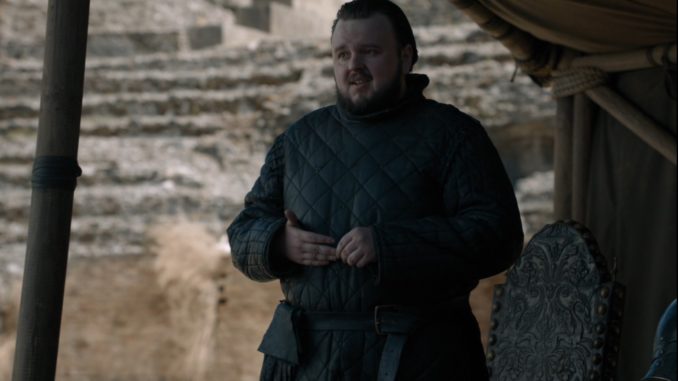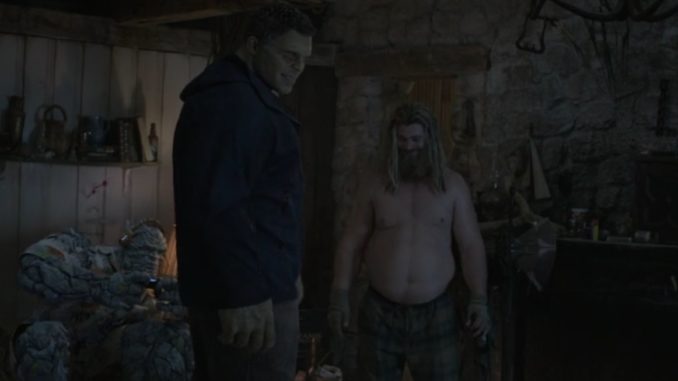
It wasn’t until a few years ago that I started to become aware of the body positivity movement. From what I could tell, this was a movement that seemed to promote the notion that people should feel good about themselves and their bodies. A laudable goal to achieve by getting people to have good self-esteem about themselves as a person. However, it has devolved into a coalition of people that are shouting and trying to say that being fat is beautiful and healthy. This rhetoric has prompted me to talk about body positivity and its inclusion in YA literature specifically.
Plus-sized heroes or main characters in stories are not something that comes up or even enters my mind that often. At least, not when it comes to Fantasy and Science Fiction to be more specific. When thinking about it, the only times I can think of any characters that are larger than the average size of a person were mostly side characters like John Watson from “Sherlock Holmes,” Piggy from “Lord of the Flies,” and Samwell Tarly from “Game of Thrones.” Yet there are protagonists that are fat. The main examples would have to be Bilbo Baggins from “The Hobbit” and Frodo Baggins from “The Lord of the Rings” trilogy. Unlike the incorrect portrayal of these characters in the movies, Hobbits in general tend to be fat (a fact I wish had been represented in the movies with regards to Bilbo and Frodo). In these two cases, both Bagginses were fat at the beginning of the books only to lose a lot of weight as they continued to go along their journey (funny thing to note, Sam is supposed to be the fit one and Frodo the fat/chubby one).

The reason why the idea of plus-sized heroes in fiction has been brought to the forefront of my mind is due to the pitch contest I talked about in episode 7 of the Knight Writer Podcast while talking about the one sentence pitch. As I was combing through the tweets, I noticed a very small selection of pitches that involved plus-sized characters and I started to think about this.
While I can respect these aspiring authors for trying to pitch a story to have it published, I am worried about the message they may try to convey to younger audiences. But as I pondered the idea in order to discuss it, I shelved this editorial for a long time because I really didn’t feel like dealing with the drama that could arise from posting such an opinion. However, I recently came across an author, Lora Beth Johnson, who recently started talking about this subject on Twitter which I found disconcerting given the stance of their complaints about the YA genre.
“Think about your favorite YA (Young Adult) books (especially sci-fi/fantasy). How many f*t characters are there? Zero? One? Are they the villain, most likely an incompetent one? Are they often described in ways that make it clear the mc is disgusted by them?”
I find it odd that Johnson would censor the word fat but their argument could be seen as somewhat valid. Fat characters tend to end up being the butt of jokes when it comes to entertainment. More recent examples would be Fat Thor in Avengers: Endgame or Samwell Tarley constantly being belittled by other characters in Game of Thrones. Fat characters are an easy target for creating humor and humorous situations in entertainment or as an object of ridicule. Something that should be looked at as low-hanging fruit when there are other, better ways to input jocular situations and characters into a setting specifically.
But when you think about it, why would there be fat people in medieval fantasy settings where food is not that plentiful or where physical labor is a daily thing? Scholars and nobility would be more fat than regular people when one thinks about the society at that time. But suddenly authors are trying to inject a modern-day lifestyle and mindset into a setting that doesn’t allow such a thing to realistically exist. There are a lot of questions that Johnson asks and points they bring up that could be discussed, but the focus of my argument must be on the overall message that is seemingly being presented here.

Johnson also tweets that YA is fatphobic and further stated,
“There needs to be more fat characters in books, in fantasy, in contemporaries, in every genre, in every age group, featured on covers, in artwork.”
To this last statement, I certainly disagree. Obesity is not something to be normalized or glamorized. Over the past several years I have seen what people call fattitude or fat positivity trying to become more mainstream with the intent to promote the idea that being fat is healthy and beautiful. As to the latter, beauty is in the eye of the beholder. But it is the erroneous promotion that being fat is healthy that worries me. Especially as plus-sized heroes are introduced to YA readers. And it is those pitches being delivered during that contest which could be a problem for kids who might read them.
Right now, we are living in a culture where the media and activists are vigorously trying to promote plus-sized models and a certain lifestyle that science says is not good for the human body. Being fat is not healthy and trying to glorify an unhealthy lifestyle is damaging to the community and especially for children. Even moreso when children are exposed to such erroneous ideals through entertainment targeted for their demographic.
The idea that there are writers out there promoting plus-sized characters as warriors and heroes is a trend that should not be encouraged when it comes to Young Adult fiction or anything catering to younger audiences. Not unless the story progresses in a natural way that shows the hero shedding off the excess weight in order to fight the good fight. I am not one for trying to limit a person’s creativity but such a concept should not be put in front of children. If such a plot was targeted towards New Adults and older audiences, then I would not have a problem with it. But young, impressionable children? That is a big concern and should be for any parent who wants their child to be healthy.

There is no denying that a market exists for stories that center around plus-sized and fat characters. At least I am pretty sure there is considering the obesity rate in America alone is, according to the CDC, 39.8 percent of Americans who were obese in a 2015-2016 report. That means there is a potential reading audience of 93 million people who could be interested in reading a story about a character that they can relate to.
Which is fine if they are adults.
But childhood obesity is not something to be encouraged or promoted. Especially if an author is trying to portray a plus-sized character being capable of wielding a sword and swinging it in battle without any physical limitations associated with their size. Or marching miles a day and still retaining their weight without any reduction as to how much they weigh. Anyone who is fat or obese knows that is simply not possible and it is not something that we should promote as being possible to children.
Should such books become more prevalent and sold to children and teenagers, there could be negative ramifications. What those are, I can only guess at and it would be up to smarter people than me to figure it out. Yet if I had to hypothesize, this could lead to instilling the belief in children that there are no consequences to being overweight. That they will be able to do everything that a healthy child can do. But when they find out that it is not true, it could have a devastating effect on their mental wellbeing, self-esteem, and self-confidence.

As stated before, it is one thing to write about an overweight character who, as the story progresses, improves themselves physically and mentally. That is a story worth telling. But a story where an overweight character can fight for hours on end, run for 10 miles without stopping, or perform other physical feats that are not possible? Or even get the man or woman of their dreams? Personally, that is not the kind of story that should be given to children to read.
Obviously, there are genres and stories that can be great where the main character is fat and plenty of overweight people are good people with awesome personalities. But the issue arises when a story’s focus is to try and subvert the fact that being fat is not healthy. When a story is trying to say that this lifestyle is a healthy one, that is where the problem occurs. It is not healthy. The current Covid pandemic brings this to life even more so as, according to the CDC, obesity is linked to impaired immune function, increases the risk of severe illness from the Coronavirus, and may triple the risk of hospitalization due to Corona infection.
If this kind of literature is catering to adults, that is perfectly fine. Adults should already know the risks of being overweight. But it is not fine if we are subjecting children to this. Childhood obesity is not something to make light of, to glamorize, or to put on a pedestal. I’ve seen a growing amount of authors trying to sell a story where the protagonist is a plus-sized woman who is a warrior, or is a fat 17-year-old during the zombie apocalypse, or an overweight girl wanting to get revenge on someone by becoming the prom queen. To the idea of the zombie apocalypse, it could work so long as we see the effects of what happens when there is a lack of food and how it affects the individual during their progression. To an overweight girl being the prom queen, it’s happened in real life and that’s cool. Sure. But what does that mean when it comes to real life?
This isn’t about trying to censor or stifle an author’s creativity. It’s about being responsible with a message you are trying to convey to your readers. Proselytizing to adults that obesity or body positivity is healthy and that you can do everything a fit person can do is one thing. But telling this to children is entirely different. Such stories are perpetuating a lie that will have devastating mental effects on children that believe this particular message.
Childhood obesity is no laughing matter and has become a problem that even the government has tried to take steps in preventing it from getting worse. There is a reason why every form of entertainment has an age rating system. Because there are certain themes, topics, actions, depictions, etc that are not suitable for a younger demographic. It should be seriously considered that the message of body positivity be one of those things that is age-restricted when it comes to the idea that being fat is healthy and glamorous.
Author’s Note: Support this site, by donating via Paypal or even checking out our merchandise on RedBubble where you can find designs that cater to writers and readers. Money donated or raised goes into paying for this website and equipment.




[…] the current wave of adaptations to accuse established fandoms of being toxic, racist, misogynistic, fat phobic, transphobic, homophobic, etc ad nauseum. The demonization and vilification of these fandoms is a […]